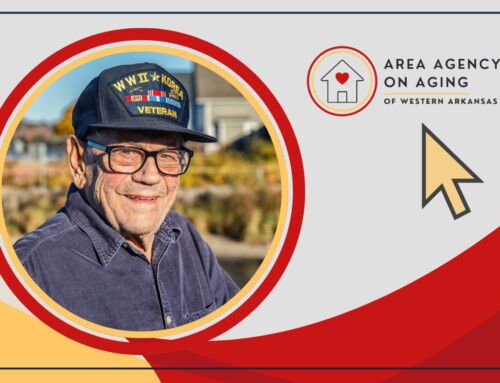Caring for a veteran is a big job—and you shouldn’t have to do it alone. If you’re a family caregiver, the VA offers real help: money, training, and support programs made just for you. But finding the right info isn’t always easy. We’ll show you what veteran caregiver resources are out there, how to get them, and who can help.
Key Takeaways:
- VA offers two caregiver programs: PCAFC (includes stipend, CHAMPVA, training, respite) and PGCSS (offers support resources, no stipend).
- PCAFC eligibility: Veteran must have a service-related injury, need daily care, served after 9/11/01 or before 5/7/75; caregivers must be 18+, complete training, background check.
- Applications use VA Form 10-10CG; apply online or by mail.
- Caregiver tier (1–3) determines stipend: approx. $1,000–$3,000/month based on location and care level.
- Payments are monthly; may include back pay; track via My HealtheVet or eBenefits.
- Tools include VA Caregiver Support Line (1-855-260-3274), Caregiver Support Coordinators, and Building Better Caregivers online training.
- Support includes mental health services, peer groups, respite, wellness tools, and legal aid resources.

Veteran Caregiver Resources And Support Services
Caring for a veteran is one of the most meaningful responsibilities a person can take on. However, it can also be one of the most demanding roles. Veterans often live with service-connected injuries, chronic illnesses, or emotional challenges that require daily support. Because of this, caregivers must balance compassion, patience, and strength in everything they do. Thankfully, veteran caregiver resources are available to make this journey easier. These programs reduce stress, provide financial stability, and improve quality of life for both the veteran and the caregiver. By exploring the services offered through the U.S. Department of Veterans Affairs (VA) as well as local agencies like the Area Agency on Aging of Western Arkansas, which is rolling out a new Veterans Directed Care program, you can find the right tools to support your loved one and yourself.
Veteran Caregiver Resources Include Two Main VA Programs
When learning about veteran caregiver resources, two programs stand out. First, the Program of Comprehensive Assistance for Family Caregivers (PCAFC) focuses on caregivers who provide daily support to veterans with serious service-connected injuries or illnesses. Second, the Program of General Caregiver Support Services (PGCSS) offers education, training, and peer support to anyone caring for a veteran enrolled in VA health care. Because these programs serve different purposes, many families begin with PGCSS and later apply for PCAFC if the veteran’s needs qualify.
PCAFC vs. PGCSS
Although both programs are helpful, they are not the same. PCAFC provides monthly stipends, health insurance through CHAMPVA, mental health counseling, respite services, and free training. PGCSS, on the other hand, does not include payments or health care coverage. Instead, it offers classes, peer mentoring, group support, and stress management tools. Because PGCSS is open to all caregivers of veterans in VA health care, it serves as a good entry point. PCAFC is more selective and intended for caregivers of veterans who cannot manage daily tasks without assistance.
Veteran Caregiver Resources Provide Wide-Ranging Benefits
Caregivers enrolled in PCAFC receive several valuable benefits. These include monthly financial stipends, health coverage if uninsured, mental health services, and temporary relief through respite care. Training is another major benefit, since it teaches caregivers how to manage symptoms, reduce stress, and provide specialized care for conditions like traumatic brain injury or PTSD. Because training is offered online, in print, and in person, caregivers can choose the format that fits their lives.
Caregiver Support Coordinators
Every VA medical center has a Caregiver Support Coordinator (CSC). These coordinators act as guides, helping caregivers understand benefits, complete forms, and connect with services. Since each veteran’s situation is different, a CSC tailors information to meet your needs. The VA Caregiver Support Line, available at 1-855-260-3274, is the best way to connect with a coordinator. With just one call, you can begin exploring the full range of veteran caregiver resources.
Eligibility Reviews
To qualify for PCAFC, both the veteran and the caregiver must meet certain requirements. Veterans must have a service-connected disability and need ongoing help with daily tasks such as eating, dressing, or staying safe. Caregivers must be at least 18 years old and may be a spouse, partner, friend, or relative. A background check and completion of VA training are also required. To determine eligibility, the VA conducts a functional assessment, where a clinician evaluates what kind of help the veteran needs on a daily basis.
Many Resources Use A Tier System
Once an assessment is complete, the VA assigns the caregiver to a tier.
- Tier 1 means the veteran needs only a few hours of help each week.
- Tier 2 is for daily assistance.
- Finally, tier 3 is the highest level, reserved for caregivers who provide full-day, everyday care. Because the tier affects stipend amounts and respite benefits, it ensures resources match the level of need.
Following the Application Process
Applying for PCAFC starts with VA Form 10-10CG. This form can be completed online, mailed, or dropped off at a VA medical center. After submitting the form, the VA reviews the details, schedules phone calls or home visits, and determines eligibility. Because the process can take weeks or even months, it is important to prepare carefully and stay in touch with your Caregiver Support Coordinator.
Securing Financial Support
Financial stipends are a cornerstone of PCAFC. Payments are tied to the federal General Schedule (GS) pay scale, specifically the GS-4 Step 1 salary in your area. Depending on the tier assignment, caregivers receive either 62.5% or 100% of that rate. For example, in 2024 Tier 3 caregivers in major cities may receive around $3,000 per month, while caregivers in smaller communities may receive less. Because stipend amounts adjust yearly, caregivers can expect changes each January.
Payment Tracking Options
Stipend payments are typically deposited by the fifth of each month. Back pay is often included, based on the date the application was submitted. To track payments, caregivers can log into My HealtheVet or use VA’s online portals. If delays occur, contacting a Caregiver Support Coordinator is recommended. Keeping organized records of payment details and correspondence makes it easier to resolve any issues.
Veteran Caregiver Resources for Mental Health And Self-Care Support
Caregiving is meaningful, but it is also stressful. For this reason, the VA offers counseling, stress management workshops, and peer support groups. The Building Better Caregivers program, for example, is a six-week online course that provides skills and emotional support. In addition, the Veterans Crisis Line is always available at 988 (press 1) or by texting 838255. Because self-care is essential, these resources exist to help caregivers stay healthy while supporting their loved ones.
Resources for To Families Of Disabled Or Aging Veterans
Support does not stop at the caregiver. Families of veterans may qualify for health care, life insurance, housing loans, or education assistance through programs like the Survivors’ and Dependents’ Educational Assistance Program. For aging veterans, organizations like the National Council on Aging provide fall-prevention programs, financial planning support, and aging-in-place tools. Local Area Agencies on Aging also offer vital community services, including meals, transportation, and home care.
Veteran Caregiver Resources that Emphasize Training And Education
Because caregiving often requires specialized skills, training is key. The VA provides free online and in-person sessions on topics ranging from daily care tasks to emergency planning. Caregivers FIRST and peer mentoring programs also help build confidence and knowledge. In addition, community colleges and nonprofit organizations frequently provide affordable certification programs, sometimes with scholarships or financial assistance.
Connecting Caregivers To Community Support
Community-based resources are an important part of caregiving. Support groups, online forums, and helplines help caregivers connect with others who understand their challenges. The Family Caregiver Alliance offers both online and local meetings, while local agencies and faith-based organizations often provide respite and volunteer support. Because shared experiences bring encouragement, these community connections are an essential part of effective caregiving.
Respite Care Options
Respite care gives caregivers short breaks while ensuring veterans continue receiving safe and reliable help. Options include in-home respite, where trained aides step in temporarily, or short-term stays in nursing facilities. Funding sources may include Medicaid Home and Community-Based Services, nonprofit respite grants, or VA-specific respite programs. By using these services, caregivers can rest, recharge, and return stronger.
Legal And Financial Planning Assistance
Planning ahead makes caregiving less stressful. The VA and local agencies provide legal and financial guidance, including workshops on advance care planning, budgeting, and organizing important documents. Because financial stability gives caregivers peace of mind, these resources are as important as health care or respite.
Veteran Caregiver Resources Support Caregivers At Every Stage
From the first day of caregiving to long-term planning, veteran caregiver resources are designed to support families through every step. Whether you use VA programs, community resources, or local services like the Area Agency on Aging of Western Arkansas, you can find the help needed to reduce stress, protect your health, and provide the best care possible. With so many resources available, no caregiver should ever feel alone in this journey.
Take The Next Step Toward Caregiver Support
Caring for a veteran is an act of honor, but it does not have to feel overwhelming. By exploring what caregiving support services offer, you can find financial aid, respite programs, and wellness tools to ease daily challenges. If you are ready to take the next step, contact Area Agency on Aging of Western Arkansas today. With the right guidance, caregivers can find balance, protect their own health, and continue to provide exceptional care for the veterans who once protected us.


